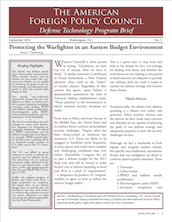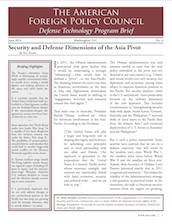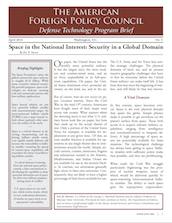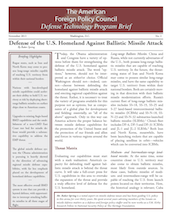
Protecting the Warfighter in an Austere Budget Environment
Winston Churchill is often quoted as saying, “Gentlemen, we have run out of money. Now we have to think.” A similar statement is attributed to Ernest Rutherford, a New Zealand physicist often cited as the “father” of nuclear physics. Regardless of who uttered this quote, many believe it appropriately summarizes the state of America’s defense establishment today. “Fiscal austerity” is the environment in which national security decisions are made...


